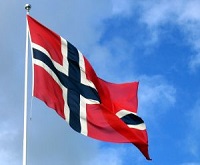Norway’s state funded healthcare system abides by high standards. The medical staff is known to be highly trained and all citizens and registered permanent residents can avail of the health benefits of this system, which is monitored by the Ministry of Health. The ministry also decides on healthcare policy, which is executed by the different health regions and municipalities. Residents can also avail of private healthcare in Norway.
State healthcare system
The Norway government funds the state healthcare system through taxes, which are directly deducted from salaries. There is no separate healthcare fund. The National Insurance Scheme (NIS) is the state insurance scheme that ensures that everyone receives a basic standard of welfare.The National Insurance Administration is responsible for this scheme, which provides cover in case of illness, accidents, disability, pregnancy, birth, loss of the family breadwinner, unemployment, old age and death. All citizens who love and work in the country must contribute to the NIS. All who qualify for state healthcare receive free inpatient hospital treatment. However visits to doctors and specialists may be charged. Prescription medicines may also come at a cost. Laboratory and radiology tests and non-emergency transportation are also paid for by citizens. Some individuals are exempted from these fees such as those with chronic disease, pregnant women and women who have just given birth. There are higher fees for dental treatments, but individuals below the age of 18 years receive free treatment. Prescription medicines are divided into two categories; white class medicines incur no costs, while blue class medicines carry subsidized costs.
Private healthcare
Since Norway has a comprehensive state-sponsored healthcare system, private healthcare is not a major player in the country. There are some private health insurance companies that offer insurance packages for citizens who want to opt for specialized treatments like plastic surgery or those who prefer to skip the hospital waiting lists. Private healthcare plays a significant role in mainly three areas of the healthcare system; dental treatment, substance abuse treatment and rehabilitation. The regional health departments of the state employ private facilities and medical staff when there is high patient demand and in such cases the treatment is either subsidized or free.
Doctors
As part of the Norwegian health system, citizens can select the doctor of their choice and register with them. But they can switch doctors only twice a year. The doctor must be registered into the state scheme; otherwise the charges have to be borne by the patients. GPs work on an on-call system outside of normal surgery hours. They also treat acute and chronic diseases, give referrals to other specialists, prescribe medications and provide preventive care.
Consultants
GPs may give referrals to consultants, who are senior doctors with higher levels of training. They can help with the diagnosis and treatment in certain cases and Norway has specialists in varied fields such as pediatrics, gynecology and dermatology.
Hospitals
There are 85 hospitals in Norway, located in the different towns and cities. Patients may be admitted to these facilities through referral by their GP or through emergency services. These hospitals provide care that is of international standards. In case of non-emergency cases, there may be waiting lists. In some cases, the hospital system may find that they don’t have the expertise to provide the required care. At these times, the treatment is arranged abroad without any charge to the patient.
Emergency care
All Norwegian citizens regardless of status are eligible for emergency care. The emergency rooms at all hospitals provide treatment 24/7, all year round. Ambulance services in the country are free and it is legally mandated that they must be available through the national health radio network to respond to emergencies.
Private clinics
The number of private clinics has increased in recent times, especially in urban areas. These facilities are funded by the doctors themselves and with private insurance cover. These are usually used to complement the state healthcare and for those medical services that are categorized as non-essential.
Dentists
Dental care is mainly in the private sector. The state health insurance scheme reimburses certain dental treatments such as orthodontic treatment, maxillofacial surgery and periodontitis treatment. There is the facility of emergency call dental care and public and private dentists are part of this scheme.

